Alexander Lloyd Blake kept reminding his ensemble choir Tonality (and mostly himself), that it was an honor to even be nominated for a Grammy. The group was nominated for Best New Age, Ambient or Chant Album for their collaboration with Carla Patullo on her album “So She Howls.” The album is a tribute to Patullo’s fight against breast cancer. Blake was surprised to learn about the nomination but eager to attend the event to watch his other friends in the industry claim awards.
He remembered thinking the true victory was Patullo surviving cancer and being able to attend the Grammys, which happened to be on World Cancer Day, of all days. This is how Blake’s mind works. He notices patterns. Calculates his odds. Then predicts outcomes.
It wasn’t until five minutes before his category was announced that he allowed himself to believe in the possibility of taking home a Grammy. Members of Tonality began to turn on their phones to record videos. “Just in case” they whispered to each other. Blake followed suit as his stomach began to wind itself into a knot.
“We can always just delete the video,” he thought.
***
Three decades ago, as a talented child, Blake started singing with the all-adult choir of the First Baptist Missionary Church in Jacksonville, N.C. as they harmonized to gospel music. Music was his connection to religion as he began to organize himself around the idea of harmony as it related to both music and his personal life. He understood that, on a basic level, music is composed of different sounds and patterns that, when combined, produce a melody. A song is the outcome of each component existing on its own but serving as a small part of a greater whole.
He quickly figured out how to find harmony in music, but struggled to do so in his own life. As a closeted gay teenager in a conservative town, the feeling of not belonging followed him from childhood into adolescence as he continually found himself feeling like an outsider.
“I didn’t see a lot of positive examples of acceptance,” Blake said.
The summer before his senior year of high school, he was offered the opportunity to attend the North Carolina Governor’s School (“Gov School”) to study mathematics. He knew nothing about the prestigious residential summer program at the time. All he knew was this was his ticket out of Jacksonville. He was off to the “big city” — Winston-Salem, N.C.
His mother, Clova Blake, was thrilled for her son to be awarded this honor and knew how big of an opportunity it was. Like her son, she is a deeply logical thinker.
When he was invited to audition for choral music at Gov School, he figured it would be a fun activity and decided to try it before dedicating the rest of his life to mathematics. Afterward, he would return to Winston-Salem to perform for his high school’s honor choir, falling in deeper love with music. On a whim, he took the AP Music Theory exam and scored a five without having ever taken the course.
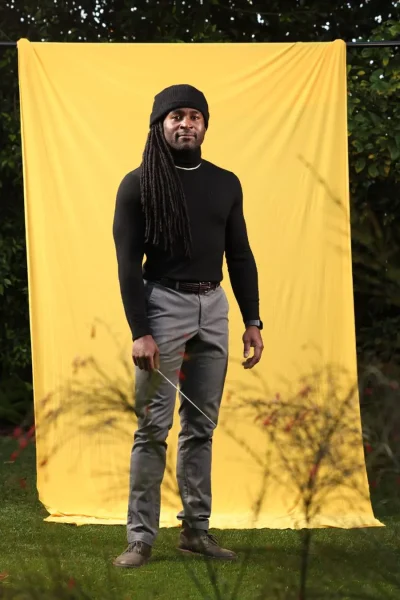
“That was the first acknowledgment from my mom,” he says. “We decided to try the whole music thing.”
***
Blake admits that he’s a homebody, so when his mom insisted that he attend college in North Carolina, he happily obliged. The one school he ruled out was UNC-Chapel Hill since the majority of his graduating class enrolled there. He didn’t want a repeat of high school. He wanted to find a place where he felt like he fit in as himself.
Wake Forest University was enveloped in a thick fog the day he first visited. Blake describes the trees and the Upper Quad taking on almost magical properties as the low-hanging clouds blanketed the campus, protecting it from the rumblings of the outside world. It was on this day that he met Dr. Richard Hurd, who has since passed away from cancer.
Dr. Hurd gave him his first choir lesson, where he shared both his expertise and love for music with Blake in a personal, compassionate way. Blake’s mind was made up. He was going to apply early decision to Wake Forest. He had no idea how he was going to afford the school until he was granted multiple scholarships, including the Poteat Scholarship.
The math versus music dilemma was finally resolved after he spent two weeks in multivariable calculus at 8 a.m. Music was his calling.
He planned to audition for the a capella group Chi Rho, after coincidentally staying with their director during a scholarship weekend before school began. But before he could audition, he was recruited to join the cheerleading squad.
“I was told later that they just kept asking me because I was nice,” he recalled. “I was told I could do both and joined the team and then Chi Rho changed their minds and told me to choose between the two.”
As a “recovering” people pleaser, Blake could not back out of his commitment to the cheerleaders and decided to remain on the team for two years. The cheerleaders were his guardian angels amidst the difficult social scene at Wake Forest. By his junior year, he switched back to Chi Rho and became the director of the group by his senior year.
Despite both groups competing for Blake’s participation, Wake Forest did not always feel the place of belonging that he had hoped for. Dr. Hurd’s influence was a major factor in Blake’s decision to attend Wake Forest, so much so that he hadn’t considered the implications of attending a homogenous PWI. He said he was one of the few Black males who were not student-athletes. Above that, feelings around homosexuality at the time were not entirely positive.
“I felt [this discrepancy] everywhere if I’m being honest,” he said. “You add those two marginalizations together, and it made for a unique undergrad experience that was not particularly positive.”
Once again finding himself on the outside of belonging, Blake found a refuge in music.
***
Blake majored in vocal performance with a concentration in arranging. Wake Forest’s small class size allowed him the opportunity to conduct choirs weekly as an undergrad, which is a rare opportunity usually reserved for doctoral students at most universities. Dr. David Hagy and Dr. Brian Gorelick mentored Blake and encouraged him in his work.
By his senior year, he had formed his own choir, the Wake Forest Chamber Singers and was writing and performing his original pieces for his final recital.
“There’s nothing that beats the experience of being in front of people and having to make decisions on the spot,” he said. “I got to have that experience a lot earlier at Wake Forest than a lot of my colleagues, and it’s been a huge advantage in my career.”
After graduating in 2010, Blake stayed at Wake Forest and worked for the admissions office for a year before working another year at the Governor’s School. He continued to co-conduct the Chamber Singers, which other students had continued after he created the ensemble for his senior project.
As he began applying for master’s programs, he joined the Winston-Salem Symphony Chorale where Robert Moody was conducting. He had been old classmates with Dr. Donald Neuen, who was teaching a master’s program at the University of California at Los Angeles. When he met Blake and learned he had never been west of Colorado, he encouraged him to apply to UCLA. When Blake learned he had earned a full ride to the program, the decision was made.
He was off to Los Angeles.
***
In California, he was befriended and greeted once again by his guardian angels — cheerleaders.
He found himself immersed in the world of California, where people and things were allowed to be different. The cheerleading squad helped him navigate the new territory. Throughout the next seven years, he developed close connections with his colleagues in the music industry. He earned his master’s from UCLA and then his doctorate from the University of Southern California. He watched as his newfound friends collaborated and competed in the industry all while relying on the support system they shared as a community.
“LA just seemed like it had limitless possibilities,” he said. “I’ve learned that when doors open, you just need to walk through them.”
This idea of limitless possibilities excited Blake’s logic-based, mathematical mind. When he looks at a sheet of music he sees numbers.
He jokes how it baffles his friends in the industry when he tells them this. In conducting and writing music, he can control the formulas that go into creating a piece.
“There’s a sense of security in formulas, math, languages and music,” he says. “They’re all the same to me. They are systems that work and that different ideas can be applied to.”
***
Blake saw how people in power can manipulate and build systems that harm the most vulnerable groups in society.
After the 2016 election, Blake looked around his world outside of music and saw racism, sexism, homophobia and bigotry rising at alarming rates. They were symptoms of deeply broken systems that had been put in place in the country by people in power. They were systems that did not work.
Tonality was his response to these broken systems.
“Tonality’s first call was to create an environment where it wasn’t just the Western European-centered music that was celebrated and highlighted, but instead it was every genre that we covered, and therefore, every person reflected by those genres would also feel equally respected,” he said. “I think we realized with the diversity that had been created [in the group], or that had been intentionally sought after, that we could do more than just be diverse, but we could really start to speak to issues that were prevalent.”
And with that, the choir began to create and perform activism pieces. By 2019, the group had premiered its first album “Sing About It.”
Blake recognized that choral music allowed his group to engage emotionally with divisive topics. Instead of throwing statistics or moral arguments at people just for them to become defensive, he found a way to inspire people to change based on human connection rather than shame or guilt.
“We can talk about the statistics of mass shootings or guns in schools, but if a singer steps up and talks about their friend who died in a school shooting, which was happened in multiple of our concerts, I think it helps the audience understand this is not the issue of gun violence or of police brutality,” he said. “They’re now hearing, witnessing and engaging emotionally with someone who’s telling your story about loss and grief. That transcends politics.”
***
He pressed record on his iPhone camera. Just in case.
Blake tried to hear what name the announcer was saying but couldn’t quite make it out. He looked up as the screen flashed “Tonality” and his row erupted into screaming, so much so that the audience members next to them looked shocked and confused before realizing what had just happened.
Alexander Lloyd Blake and Tonality had just won a Grammy.
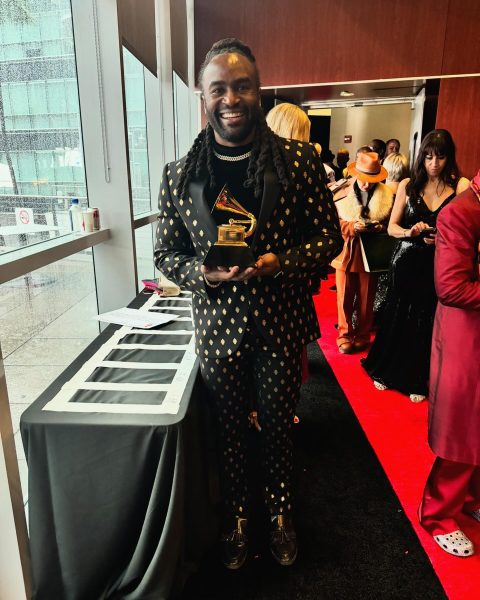
The group rushed onto the stage in a state of blurred bliss to accept the highest honor in the music industry. He looked out into the crowd of star-studded celebrities and into the camera that was broadcasting the moment for his family at home. He felt the younger versions of himself staring back at him as he held his first Grammy.
Waves of gratitude for his family, friends and mentors rushed over him. He felt grateful for every challenging moment he overcame, every community he belonged to, every door he had walked through and every door the award had just opened.
Performing his music is an act of radical love and acceptance of himself and others. To him, it’s a practice of harmony and activism. Music is his connection to God and humanity. It’s always been his lifeline.
As he stood on stage, he pictured the child who grew up in Jacksonville wondering if he would ever find a place to belong.
“He was never not worthy,” Blake said with tears in his eyes. “There was always a place for him…he just didn’t realize.”





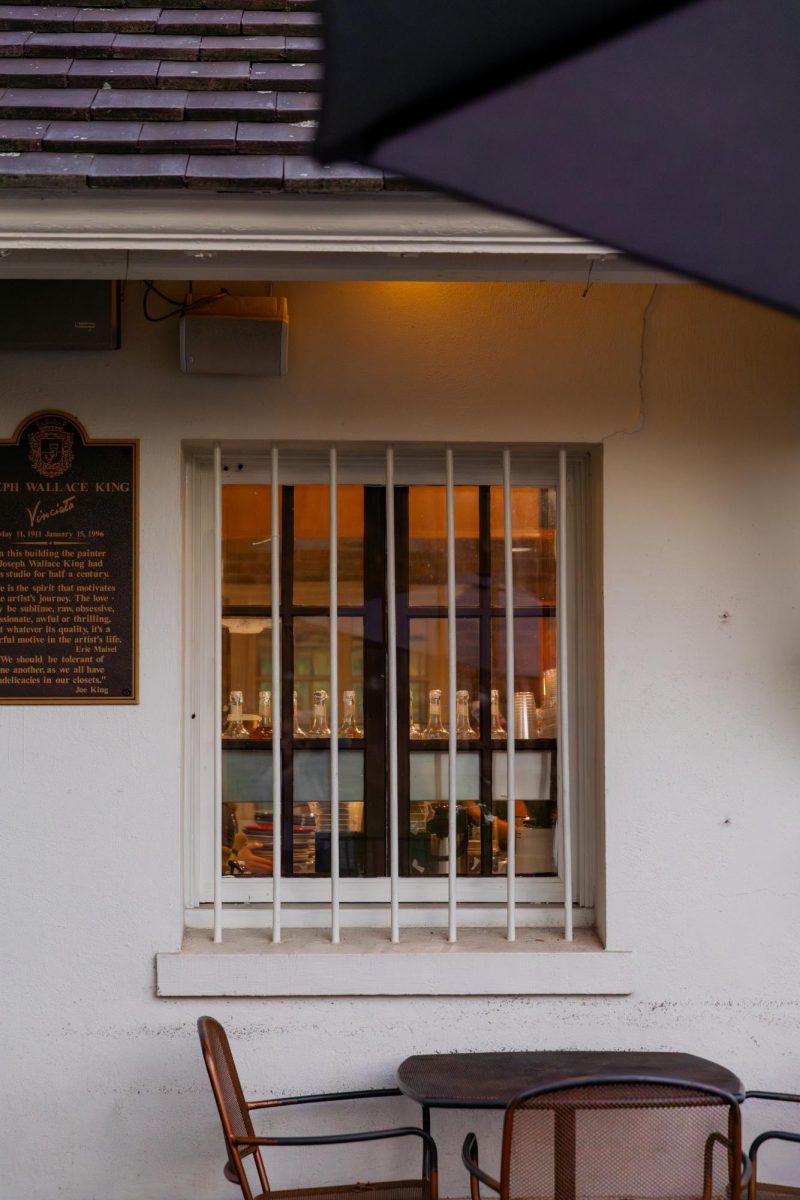
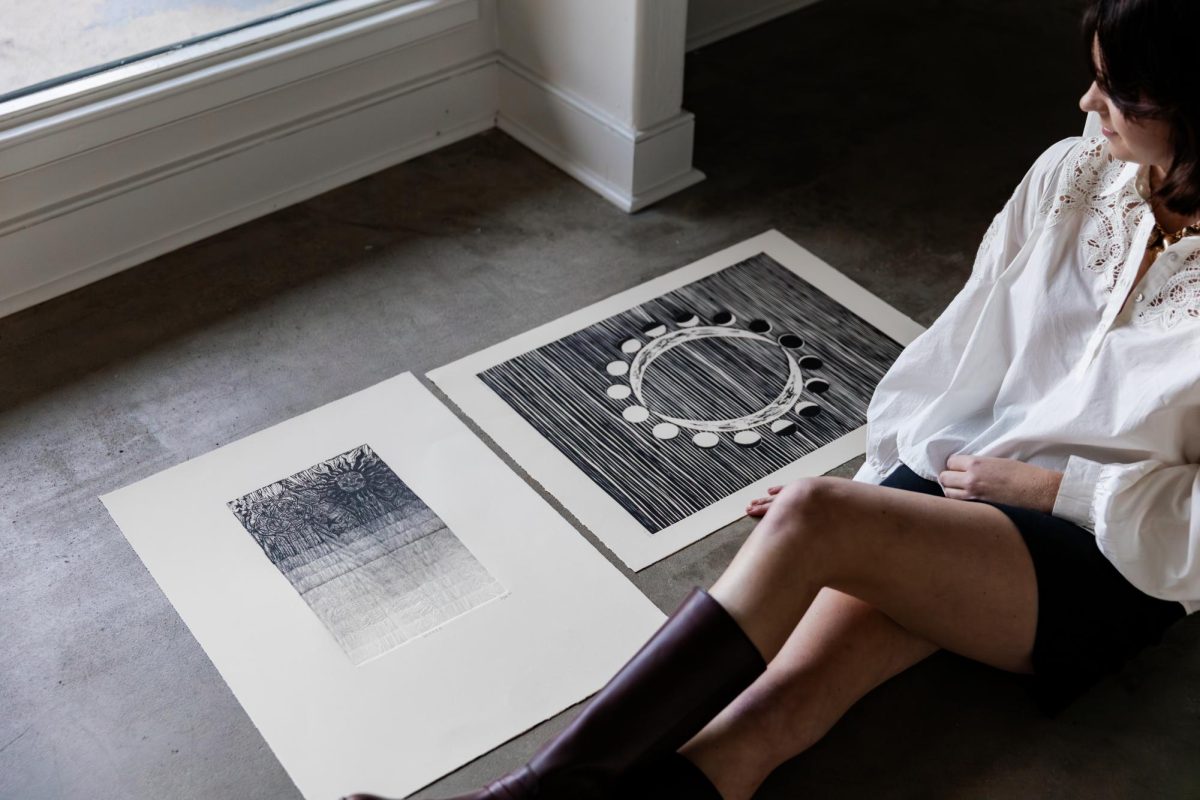
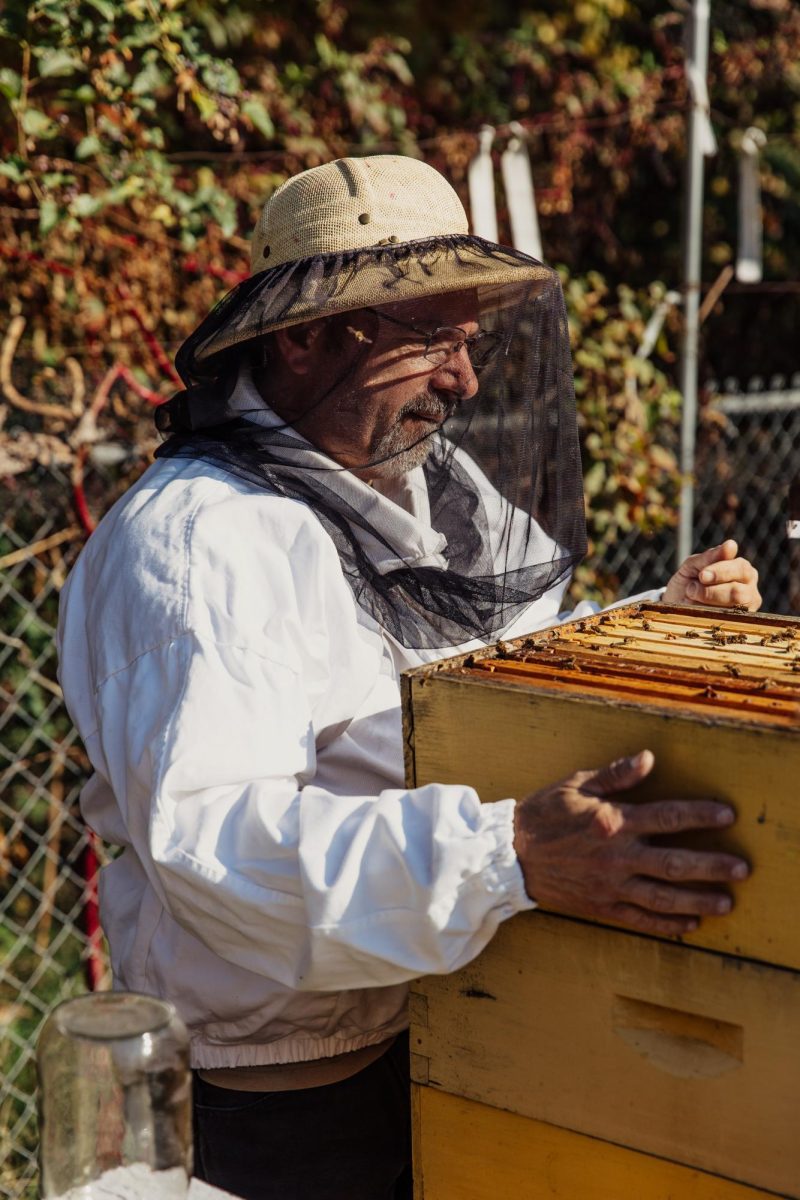
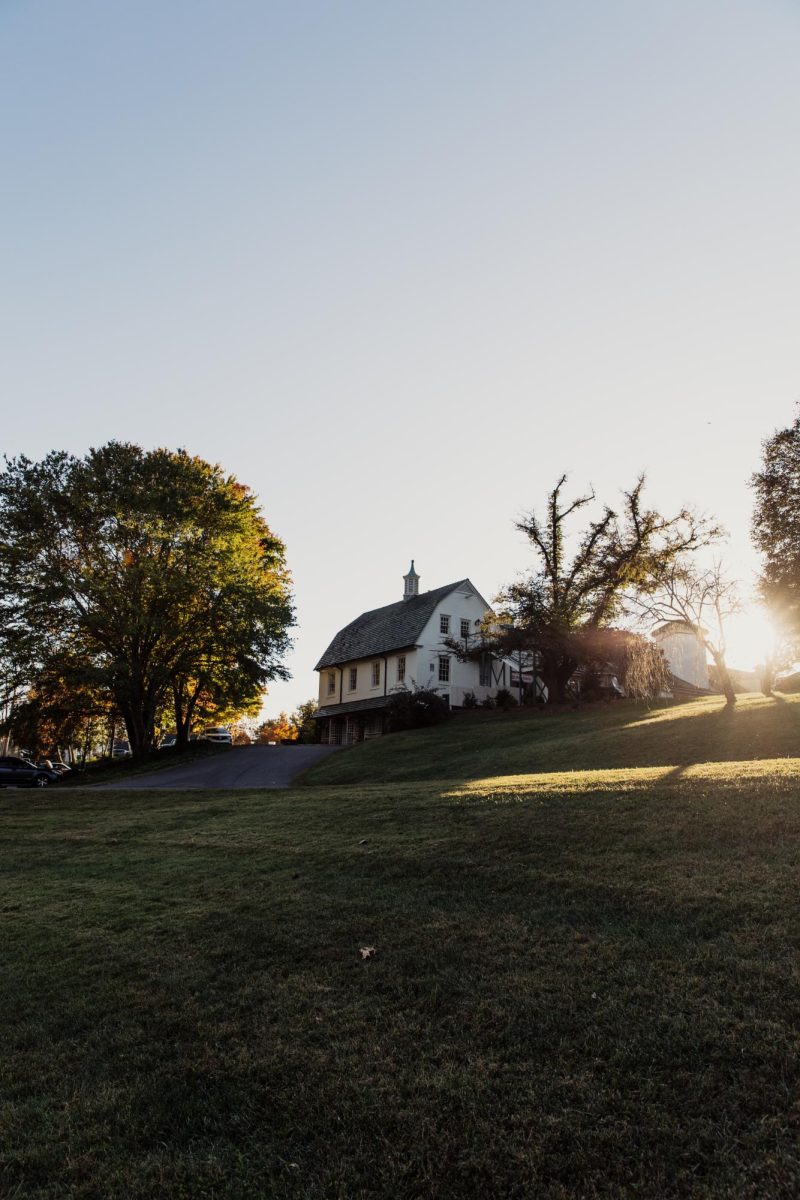
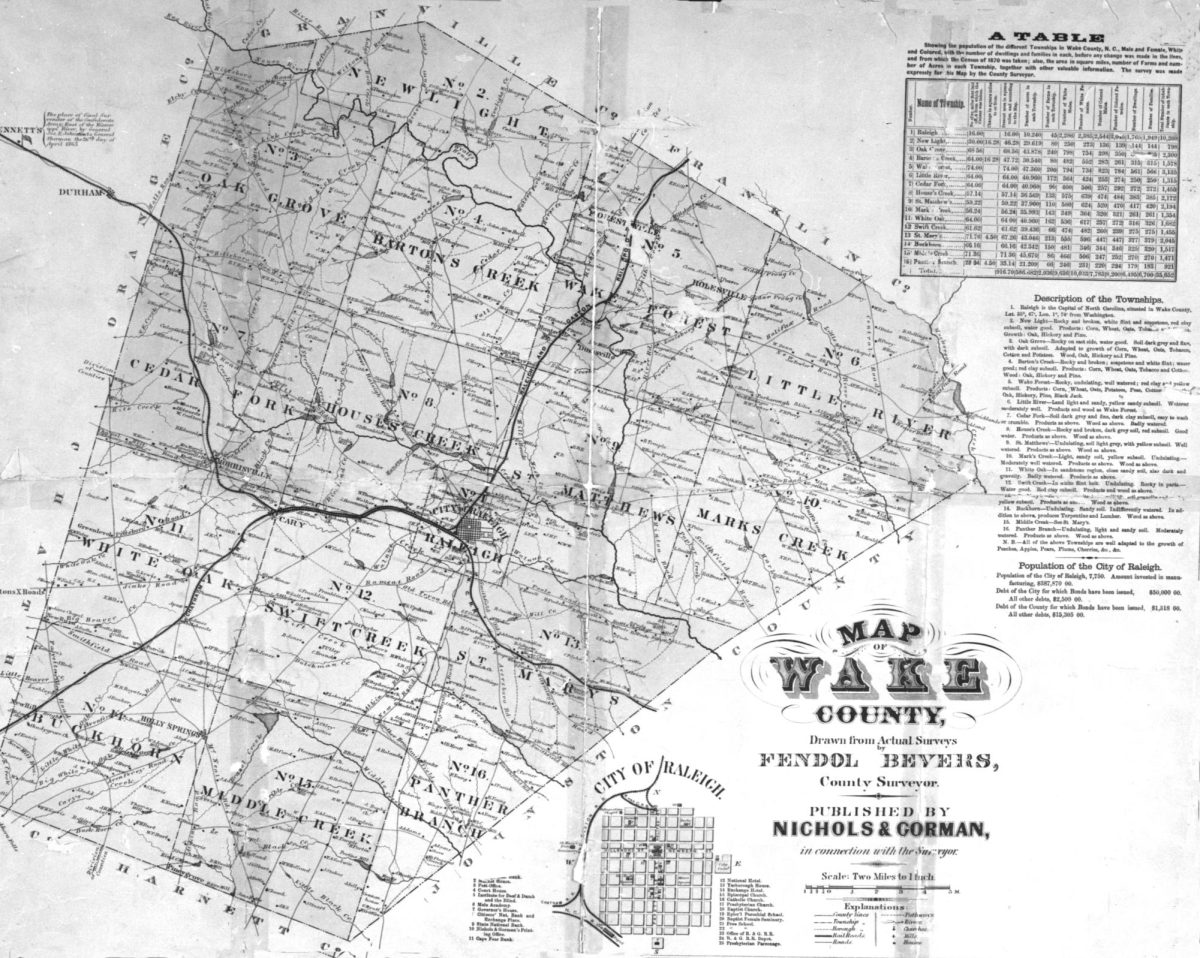

Lauren N Potter • May 2, 2024 at 3:22 pm
Hats off to writer Virginia Noone, for the beautifully written piece. I don’t think I’ve read a piece that captures the Alex’s heart and essence and the spirit of Tonality so well. This piece made me cry!
Sonja Williams • May 1, 2024 at 6:48 pm
Alex, thanks for sharing your journey!! Congratulations!! I’m so proud of you!!